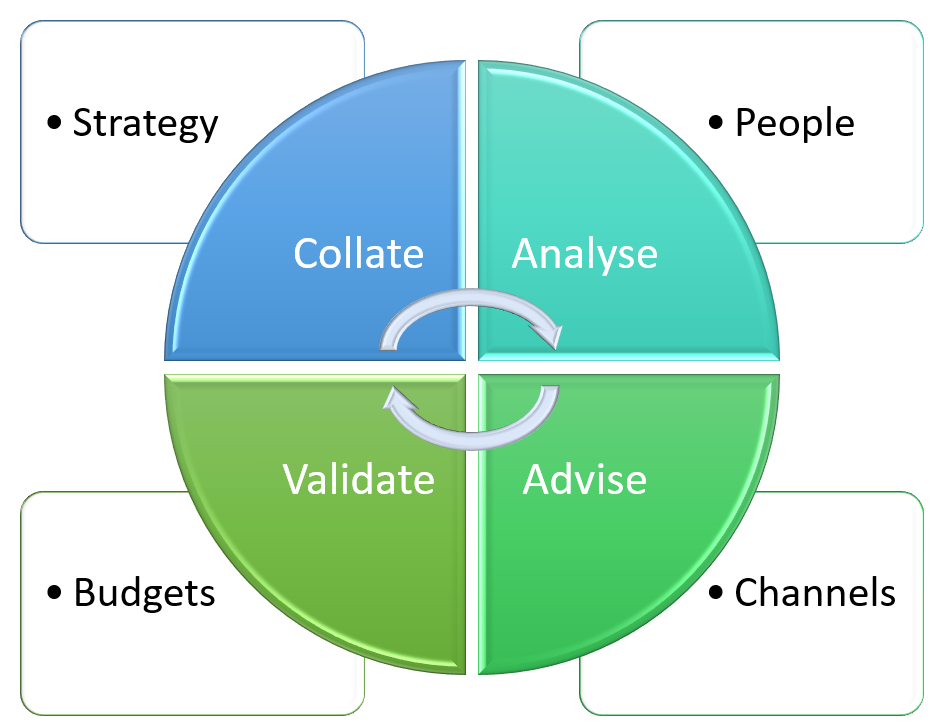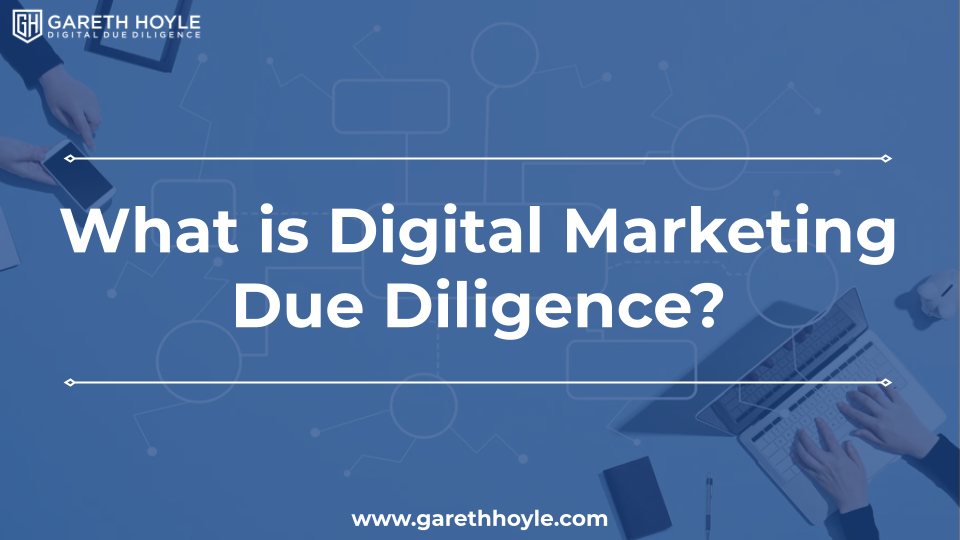As a team we have worked on hundreds of digital marketing due diligence projects over the last 20 years across all the key digital marketing channels. One of the key learnings that we have had is that regardless of how well a digital marketing campaign or strategy is working, there is always room for improvement. Additionally, we have learnt that often, a campaign may be seen as successful, however when deep diving “under the hood” to speak, there are some major shortfalls.
The whole point of the due diligence activity is to take your digital marketing apart to make sure there are no gaps that you are missing. The team here are experts in their fields and have a vast library of successes and years of experience.
Jump Sections
The Digital Marketing Due Diligence process includes:
- Review existing campaigns
- Run technical audits
- Run analytical audits
- Review agency workflow and costs
- Review and interview key staff
- Review budgets and goals
- Analyse past performance
The Digital Marketing Due Diligence Process
The easiest way to explain the process is by highlighting the key components of most digital marketing campaigns.
There are four main components:
- Strategy
- People
- Budgets
- Channels
Our team goes through each one of these key components and breaks it down.
The key here is for us to:
- Collate Data
- Analyse the data
- Validate our findings
- Advise based on our research
This is a powerful, modular methodology that allows a team like ours to view all data with a fresh viewpoint, and this approach uncovers a range of opportunities, often overlooked by teams that work on the same campaigns or brands day in day out.

Digital Marketing Due Diligence: Mini Case Studies
It is hard to imagine that a campaign that is profitable having issues, but take for example some of our marketing due diligence findings over the years:
Reviewing Performance on Paid Search
A leading online retailer was running a successful PPC campaign to drive traffic and sales. It appeared that the agency running the campaigns were treating ROAS (Return On Advertising Spend) as a holistic number and reporting it as such.
Upon our analysis, it appeared that 7-8% of keywords generating traffic never contributed to sales even when viewed under a 30 day period. Additionally, 3-4% of keywords were on negative ROAS.
Combining and reviewing this data, it was clear that the campaign was wasting 10% of its budget on keywords that were either costing too much to generate sales or were not generating any sales whatsoever.
Culling those unproductive keyword sets allowed the business to reinvest 10% of its significant PPC budget to more profitable activities.
Reviewing Technical SEO Issues
A high street brand was running a successful website, generating millions each month, with an annual SEO and PPC budget of £3M in the UK. However it appeared that most sales to a subset of the site were being only generated via PPC.
Taking a deeper look at the organic structure of the site, we discovered that 40% of the site’s long tail pages were blocked from being crawled. Investigating the reason, we were informed this was at the behest of the IT director. Our team interviewed the IT director to figure out why – it appears that the section of the site was built many years ago, and a wildcard script was auto generating session urls with every bot crawl, which was leading to more and more “virtual” pages being created, indexed and thus crawled. With every crawl the issue got worse and was affecting the sites hosting costs and performance.
Instead of fixing the rogue script the IT team decided to simple block crawlers from that part of the site! Our team proposed a technical solution, which once implemented allowed the complete indexing of the site without causing the aforementioned issues.
Within 6 months the site was generating 35% more organic traffic and reliance on PPC dropped by £1M annually.
Reviewing Conversion Issues
We began working with a well known American healthcare insurance provider that had been running an unprofitable site. They came to us to help figure out what was going on – they had heavily invested in paid search, but couldn’t make the campaign perform and were working on a 1:1 ROAS ratio.
Our analysis team reviewed the campaign from start to finish, and proposed a reworking of their booking engine – especially when dealing with group insurance. The existing platform was clunky, particularly on mobile, which was 40% of their traffic and majority of abandonments were on the second stage of the booking.
Once the new version of their booking engine went up, with a more streamlined user journey and better mobile experience, their conversions jumped four-fold, and their ROAS ratio improved to 1:7 – which was in line with their budgeting. We carried on working on their digital channels and fine tuned the site and performance and left the business running at 1:10 ratio.
Benefits of an External Digital Marketing Due Diligence Team
It’s not always an easy decision to bring in an external team to assess work being carried out by an existing one.
However, there are many benefits of working with a professional digital marketing due diligence team:
- Peace of mind: Making sure everything is running as it should
- Uncover missed growth opportunities
- Take advantage of additional skill sets and cross industry experience
- Factual assessment of status, unencumbered by internal politics
- Recognise skill deficiencies or opportunities to upskill staff
- Significant budget savings
Let us guide your decision making
We are confident you will make better decisions when backed up by our digital due diligence. Whether you are looking for an audit of your existing agency or help finding a new marketing agency, please do get in touch to start the process today.
